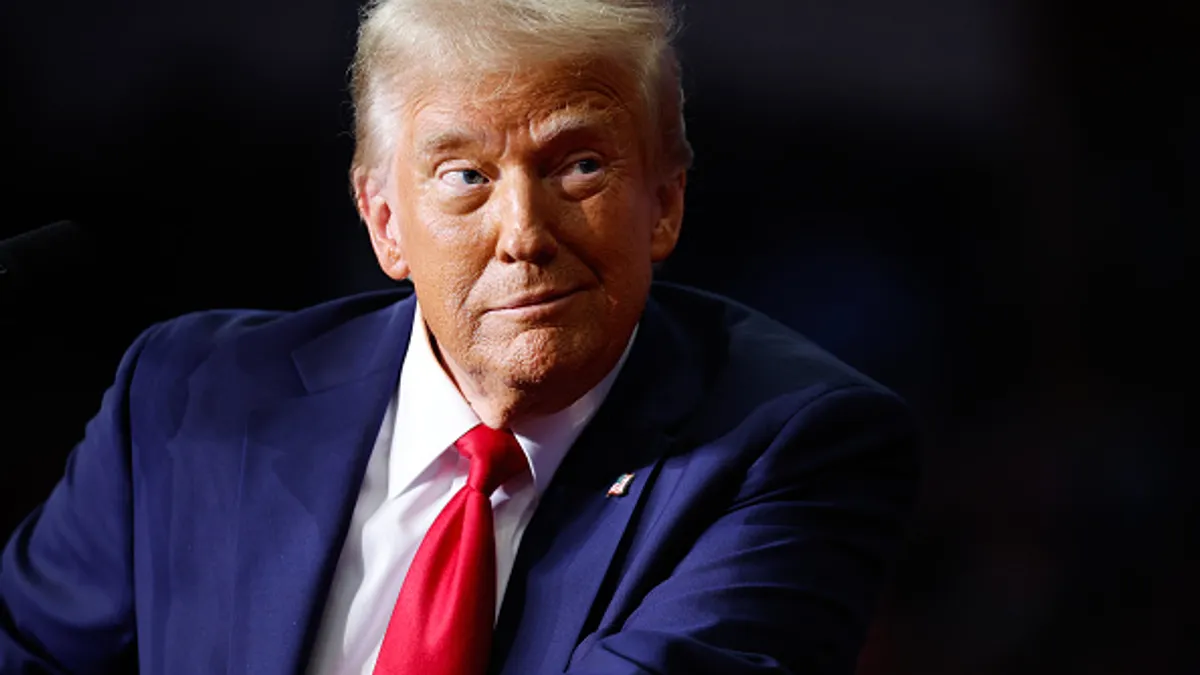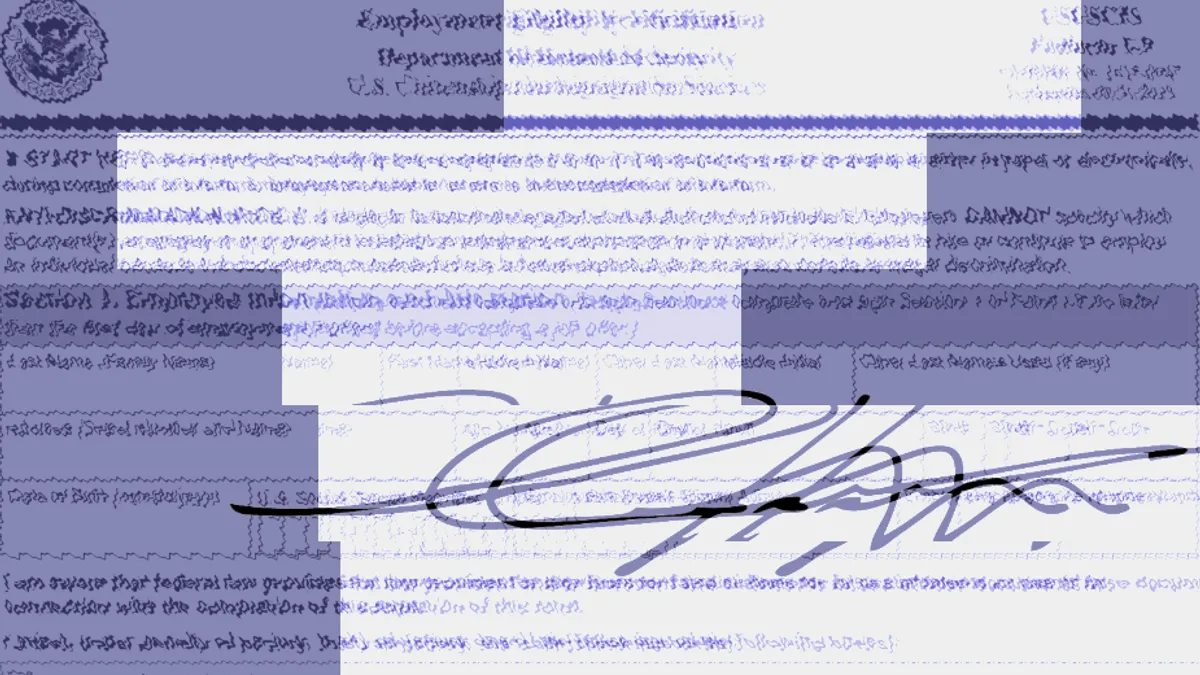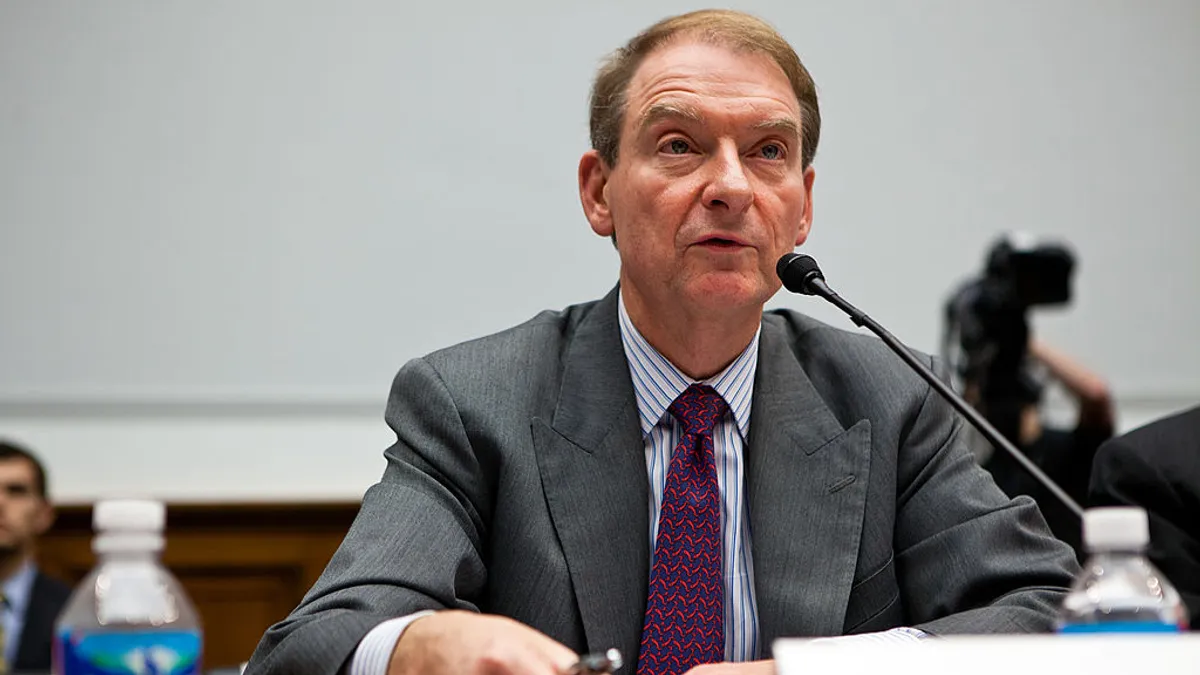The U.S. Chamber of Commerce and other opponents of the nationwide ban on noncompetes that the Federal Trade Commission approved in April have reason to cheer the presidential election outcome: the incoming Trump administration is expected to dump it.
“The non-compete rule is vulnerable,” Greg Care, a partner at Brown Goldstein & Levy, said in a post-election analysis.
The ban was slated to take effect in September but it’s been blocked by a federal court in Texas. The FTC has appealed that ruling, in the 5th Circuit, and it’s appealing another ruling against the ban, in the 11th Circuit. Should the government succeed in its appeals, the ban would be allowed to take effect. A federal judge in a third case challenging the ban, in Pennsylvania, sided with the government.
‘Draconian’ agreements
Trump’s use of nondisclosures and other agreements that are prescriptive enough to function as noncompetes is widely recognized, news coverage shows.
“For decades, Donald Trump has relied on broadly worded nondisclosure agreements as a powerful weapon against anyone who would say something critical of him,” according to a Washington Post report.
The NDA that he had people sign when he ran for president in 2016, for example, ran five pages and included a noncompete component.
“Until the noncompete cutoff date,” said the NDA, referring to the end of the presidential campaign, “you promise and agree not to assist or counsel, directly or indirectly, for compensation or as a volunteer, any person that is a candidate or exploring candidacy for federal or state office other than Mr. Trump and prevent your employees from doing so.”
In other words, while the presidential race is ongoing, once you work for candidate Trump, you can’t leave to work for another candidate.
Other provisions in the NDA are written broadly enough that they function as a noncompete clause by preventing someone from using what they know in any capacity outside of the campaign. That’s accomplished in part by what “confidential” means. Under the agreement, anything “that Mr. Trump insists remain private or confidential” is what the agreement defines as confidential.
“His nondisclosure agreements are draconian,” Orly Lobel, an employment law specialist at the University of San Diego School of Law, wrote in The Atlantic in 2019.
Under the FTC’s noncompete ban, any nondisclosure or other provision that has the effect of a noncompete would be subject to the ban.
“‘Whether a given restrictive covenant rises to the level of being a functional non-compete will turn on the facts and circumstances of particular covenants,” the FTC says in the preamble to the final rule.
Close ally
Trump’s expected preference to see the ban go away has an ally in G. Brint Ryan of Ryan LLC, the accounting firm that filed the lawsuit earlier this year that led to the ban being blocked in federal court.
In August, Judge Ada Brown of Texas issued a ruling siding with Ryan. It said the FTC overreached with the ban because its authority to issue rules is limited to procedural matters as part of its enforcement authority and doesn’t extend to the kind of substantive areas that the ban represents.
“Congress did not explicitly give the Commission substantive rulemaking authority,” said Brown, whose ruling is now under appeal by the FTC.
As a “Republican megadonor” and tax adviser to Trump, as The American Prospect put it in a report, Ryan would be considered an ally of the incoming president.
Ryan “visited Donald Trump in Beverly Hills during the 2016 presidential campaign to discuss tax policy,” says the report, drawing on reporting by Politico. And his company gave $275,000 to pay for Trump’s inauguration in 2017, the American Prospect report says.
Administrative actions
Probably the easiest way for the Trump administration to kill the rule is simply to drop its legal fight to get the final judgment lifted, Care said in his analysis.
“Once [FTC Chair Lina Khan] is replaced, it is a good bet that the new chair would cause the Department of Justice to withdraw the appeals in the Fifth and Eleventh Circuits and drop the other case in a Pennsylvania federal court,” Care said. “This would effectively leave intact the Texas federal court decision imposing a nationwide ban on enforcing the non-compete rule.”
Another way the administration could end the ban is for the person Trump appoints as FTC chair to join with the commission’s two Republican members to vote to rescind the rule. Both Melissa Holyoak and Andrew Ferguson, who joined the FTC earlier this year to replace the previous Republican-appointed commissioners, opposed the ban when it was passed in April.
Even if the new FTC chair acted right away, it would take a while for the repeal to go through because of the time required for an action like this to move through federal rulemaking procedures.
“This action would need to follow the sometimes lengthy notice-and-comment process,” Care said.
The rulemaking process would also apply if the new FTC chair, working with the other commissioners, decides to modify rather than rescind the rule.
A third way the rule could go away, Care said, although it likely won’t be necessary, is for Congress to step in.
“Under the Congressional Review Act (CRA), the President and Congress can nullify a regulation if a joint resolution of disapproval is passed and signed by the President within a specific and limited timeframe,” Care said.
Trump has experience with the CRA, according to Care. He used it to erase at least 15 Obama administration regulations at the start of his earlier term. “This is a tool well-known to him,” he said.



















